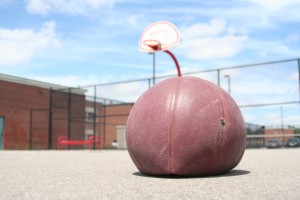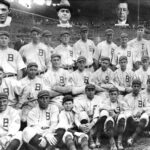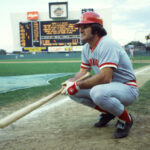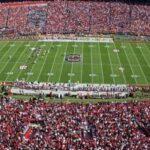Does the NBA Not Realize That These Are Tough Economic Times?
In case you have had your head in the sand, or perhaps in a basketball, for the last three years, these are not particularly good economic times for most Americans. The unemployment rate remains above 9 percent and the even more significantly under-employed rate is over 16%. At the same time, wages for those who are lucky enough to have and keep a job are increasing at about one third the rate of expenses for the average American.
Yet, despite this climate of economic crisis, the NBA and its players have decided that now is a good time to engage in a battle of wills that appears to be destined to derail the start of the NBA season and potentially the entire season.
You would think they might have learned something from their counterparts in the NFL.
After five months of throwing punches back and forth, when the NFL and its players absolutely had to make an agreement to avoid a work stoppage they came to a deal that will help keep growing their $9 billion industry. The result is that ratings are up so far in 2011 and the sport has seen no lasting impact from their short-lived labor woes.
As the NBA reaches their point of no return before regular season games are scrapped, they might want to take a hard look at their sport and its place in the American hierarchy.
Even in a normal year, only die-hard fans of the 30 NBA teams really pay attention to the start of the NBA season. It typically isn’t until after March Madness ends in early April and the NBA playoffs are about to begin that the sport seizes control of sports talk shows and the interest of most sports fans.
It appears to me as an outsider that losing early season games likely has a greater impact on the players than it does on the owners. The league has been hemorrhaging money for many years and except for the most successful markets where they have a strong season ticket base, games in November and December when there are many other things to occupy the interest of fans probably aren’t the biggest draws. Plus, since most of the nationally televised games happen in the second half of the season and in the playoffs, missing a month or two shouldn’t have a huge impact on television revenue.
However, for players who have not seen a paycheck since last spring, they probably have been counting the days until the paychecks start rolling in. While the superstars with outside endorsement deals are likely to be okay for a while financially, the average NBA player is probably starting to sweat a bit at the prospect of additional months without significant income.
Reportedly, the owners have offered the players 50% of all basketball-related income, down from the previous split of 57% for players and 43% for owners.
First off, whoever negotiated the previous deal for the owners is probably long-gone as even when times are good that seems to be an amazingly ridiculous split. If the split had been more equitable in previous deals it probably wouldn’t be so hard to come to a fair agreement this time around.
Considering that the NFL players, who are in a sport that is dwarfing the NBA in popularity and revenue growth, accepted a new deal where they receive 48.5% of all revenue, you would think the NBA players would be doing cartwheels at 50%.
However, their arrogance seems to be getting the best of them as they want 53%.
But arrogance in this case isn’t reserved for just one group. Many of the owners have reportedly been willing to scrap the entire season to ensure that they ultimately get the labor agreement that works best for them.
While they certainly have every right to maximize their leverage (as do the players), what I think the owners are overlooking when they talk about skipping the season is their obligation to the communities in which they operate.
Most NBA teams perform in arenas that were primarily funded by public dollars and those communities rely on their portion of the parking and concession revenue to pay down the debt. If the NBA goes an entire season without games, it will impact the ability of these cities to pay down the debt on the lavish homes they provide for the NBA teams. In addition, the reduction in revenue will also be seen in local tax revenue as there will be less people eating at downtown restaurants and the workers who typically receive income working either at the arenas or local establishments will have less money to spend.
By the way, if the owners try to whisk away the value of this lost revenue by saying it isn’t significant, then that is the complete opposite of what they typically have argued when trying to justify the public spending on building their lavish facilities.
In the end, regardless of how long the stalemate lasts both sides will ultimately receive some financial satisfaction and likely it will be the localities and fans that pay for it. Look for ticket prices to continue to rise and the next time a city is looking for a new arena there is no question that the increased overall costs for doing business will be part of the argument as to why the local government needs to pick up the tab.













